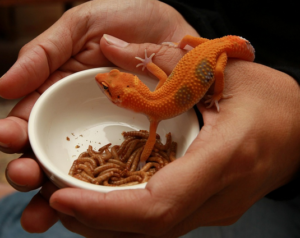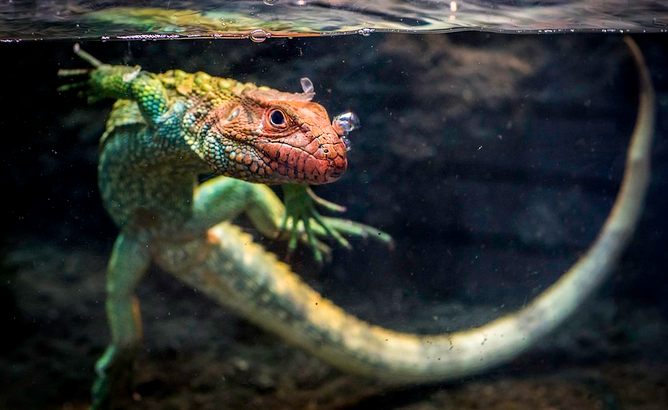Today, we are diving into a fascinating topic that might make you think twice about those adorable reptiles and amphibians you’ve been eyeing. While these creatures may seem harmless and intriguing, being aware of the potential risks they can pose to our health. Even if they’re healthy and always provided with the best dehumidifier for reptile tank, the risks of getting diseases are always there.
Yes, you heard that right – some of these slimy and scaly companions can actually transmit diseases known as zoonotic diseases. So before you venture into bringing home a new cold-blooded friend, let’s explore some common zoonotic diseases that reptiles and amphibians can give you.
Salmonella Infection

Salmonella infection is a well-known zoonotic disease that can be transmitted by reptiles and amphibians. These animals, especially turtles, snakes, and lizards, are commonly carriers of Salmonella bacteria without showing any symptoms themselves.
How does this infection spread? Well, it’s mainly through direct contact with the animal or their contaminated environment. So if you’re handling your pet reptile or cleaning its tank without proper hygiene practices, you could unknowingly expose yourself to Salmonella. Once infected, symptoms may include diarrhea, stomach cramps, fever, and nausea. While most healthy individuals recover within a week without medical intervention, serious complications can arise in young children or those with weakened immune systems.
Botulism
Botulism is a serious zoonotic disease that can be transmitted by reptiles and amphibians. It’s caused by a toxin produced by the bacterium Clostridium botulinum, affecting the nervous system and can often result in paralysis or even death.
The bacteria are commonly found in soil and water, making it easy for reptiles and amphibians to come into contact with them. Humans can easily get infected through direct contact with contaminated animals or their habitats, as well as through consuming food or water that has been contaminated. Symptoms of botulism include muscle weakness, blurred vision, difficulty swallowing, and respiratory problems. If left untreated, it can result in respiratory failure and death.
Campylobacteriosis
 This disease is caused by bacteria called Campylobacter, which are commonly found in the intestinal tracts of these animals. When a person comes into contact with infected reptiles or amphibians, they can become contaminated with the bacteria through direct contact or by touching surfaces or objects that have been contaminated. Symptoms of campylobacteriosis include diarrhea (often bloody), abdominal pain, fever, and nausea. Note that not all reptiles and amphibians carry Campylobacter, but it is still necessary to take precautions when handling them. Washing your hands thoroughly after handling these animals or their habitats can greatly reduce the risk of infection.
This disease is caused by bacteria called Campylobacter, which are commonly found in the intestinal tracts of these animals. When a person comes into contact with infected reptiles or amphibians, they can become contaminated with the bacteria through direct contact or by touching surfaces or objects that have been contaminated. Symptoms of campylobacteriosis include diarrhea (often bloody), abdominal pain, fever, and nausea. Note that not all reptiles and amphibians carry Campylobacter, but it is still necessary to take precautions when handling them. Washing your hands thoroughly after handling these animals or their habitats can greatly reduce the risk of infection.
Being knowledgeable about the risks associated with owning reptiles and amphibians helps ensure both their well-being and our own health safety. By practicing good hygiene habits, providing suitable diets, regularly cleaning enclosures, and avoiding high-risk behaviors like eating while handling these animals, we can strike a balance between enjoying our unique pets while reducing the chances of contracting zoonotic diseases.…

